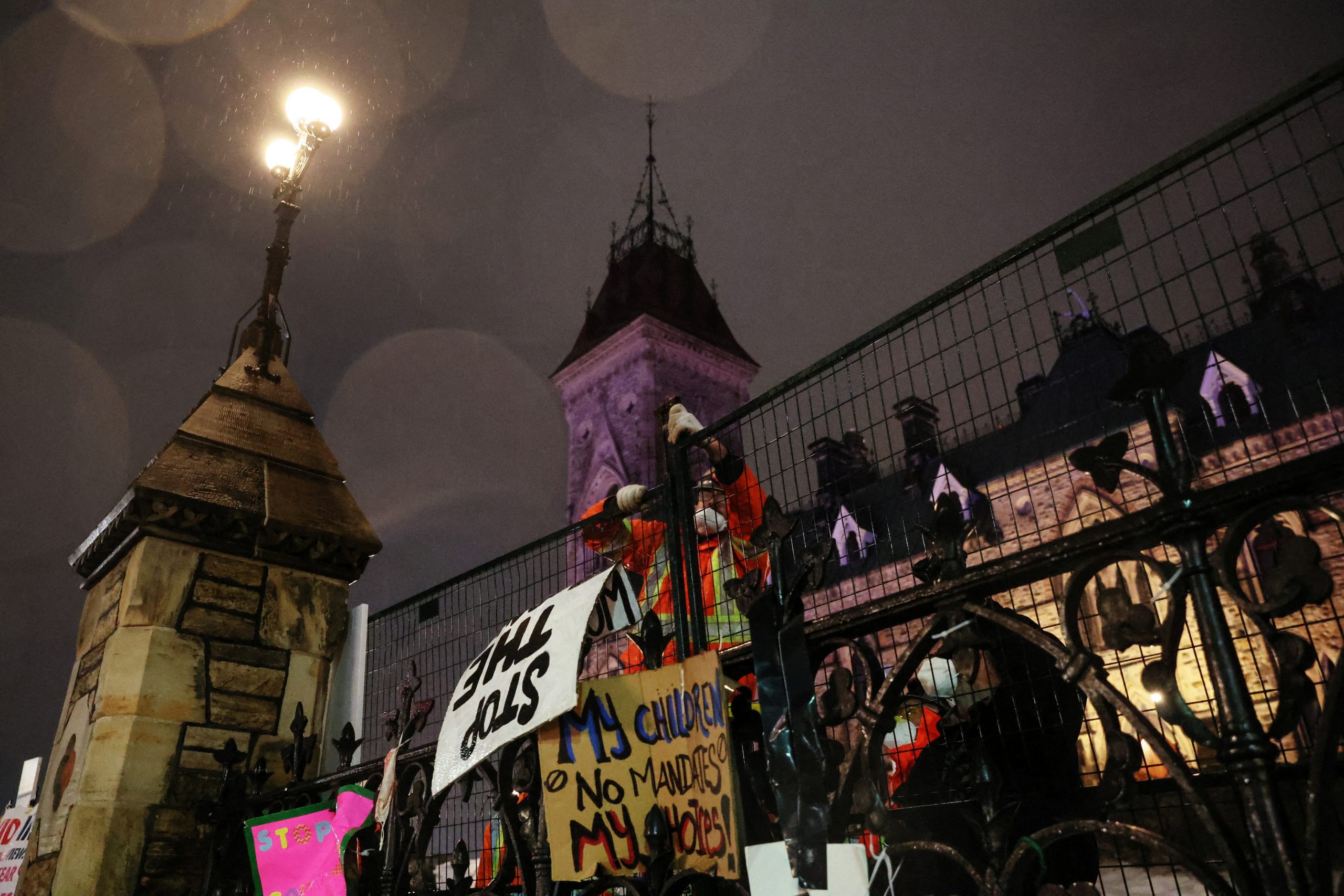Canada roped in banks to help cut funding to protesters against COVID-19 mandates this week, but the requested speed and broad scope of the measures leaves financial institutions to their own devices in enforcing most of them, industry-watchers said.
Prime Minister Justin Trudeau on Monday invoked the rarely used Emergencies Act, imposing sweeping measures that require banks to freeze accounts linked to the protest without court orders, ask insurers to suspend coverage on vehicles used in blockades, and bring crowdfunding platforms under terror financing oversight.
Regulations released late on Tuesday widened that net, ordering banks, credit societies, investment firms, crowdfunding and donation platforms to stop providing financial services to people suspected of furthering the protests.
The Canadian Bankers Association said all financial institutions “will need to diligently implement the required measures”, adding it would not affect the majority of customers.
Protestors against Canada’s pandemic restrictions have gridlocked the nation’s capital and blocked U.S. border crossings, prompting Trudeau to turn to the emergency powers to take control of the situation.
Canadian law enforcement has been sharing information with financial institutions, who have already taken action based on it, Deputy Prime Minster and Finance Minister Chrystia Freeland told reporters on Thursday.
“The emergency measures we put in place are being used,” she said. “They are having an impact and they will have a growing impact in the days to come.”
But some industry-watchers expressed concerns with, and confusion about, the measures.
“It is framed in a very vague way … it’s a broad transfer of responsibility from the government to the private sector,” said Marius Zoican, assistant professor of finance at the University of Toronto. “This would not be easy on the banks. They’re caught in between the order and public opinion.”
The rules are framed similarly to existing regulations dealing with sanctioned individuals or entities, said Jacqueline Shinfield, co-lead of the Financial Services Regulatory group at law firm Blake, Cassels & Graydon.
But the challenge lies in the speed with which it comes into effect – essentially immediately – Shinfield said. The lack of clarity around which clients would be subject to the measures and who makes this determination is also a potential hurdle, she said.
MULTILAYERED INCREASE
To comply, banks must ensure payment processors are abiding by the regulations; payment processors in turn will want to ensure crowdfunding platforms do the same, creating a “multilayered increase of regulation” that companies will need to meet in a short period of time, said Vanessa Iafolla, financial crime consultant with Antifraud Intelligence Consulting.
Trudeau said the emergency measures, which need to be approved by Parliament within seven days and cannot exceed 30 days, will be time-limited.
“This is going to be … probably more symbolic than something with a lot of teeth to it,” said Brian Madden, chief investment officer at First Avenue Investment Counsel.
“This creates a short-term urgent project. But it’s not of such a magnitude and duration that (financial institutions) start hiring 500 people to do anti-truck blockade compliance regulation.”
Even so, banks will have to update their systems to flag and manually scour transactions, particularly those related to cryptocurrencies and crowdfunding platforms, that would not have been deemed suspicious earlier, Zoican said, which could lead to some short-term costs.
The lack of defined parameters, such as on dollar-amount thresholds for suspicious transactions, mean banks’ actions are unlikely to be as exhaustive as the government would like, both Madden and Zoican said.
“If you donate C$10,000 or C$20,000, then you’re really involved; if you’re just putting C$25 in a GoFundMe account, you can’t really be treated as a terrorist financier,” Zoican said.
“This is taking a hammer to swat at a fly.”
(Reporting by Nichola Saminather in TorontoEditing by David Holmes and Matthew Lewis)
Related






























